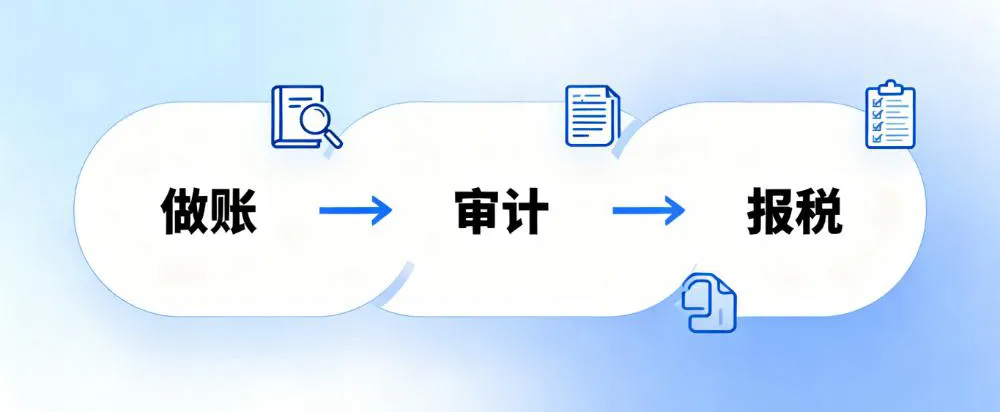2025 Hong Kong Offshore Exemption New Regulations Compliance Guide: Tax-saving Logic, Application Requirements and Full Process Practical Operations

Commercial Data Interchange (CDI): A Valuable Tool for Hong Kong SMEs, Streamlining Financing and Trade
You may not have heard of the "Commercial Data Interchange (CDI)", but for small and medium-sized enterprises (SMEs) engaged in business, it is an invaluable helper. Since its launch in October 2022, this platform has helped numerous enterprises address the difficulty of obtaining loans. At a recent data summit, the Hong Kong Monetary Authority (HKMA) announced that the platform will connect to more data sources in the future—such as the Customs One-stop Service—to further facilitate loan applications and trade financing.
What Exactly Does the CDI Do?
As of the end of June this year, the CDI has assisted over 61,000 enterprises in completing loan applications and approvals, with the total approved loan amount exceeding HKD 50.1 billion. Currently, 26 banks and 17 data providers are using the platform. Simply put, when an enterprise applies for a loan, banks can quickly access reliable data through the CDI—eliminating the need for repeated document supplements as in the past and significantly accelerating approval speed.
Solving Hong Kong’s "Data Fragmentation" Problem
At the summit, HKMA Deputy Chief Executive Eddie Yue noted that Hong Kong’s data was highly fragmented in the past. For banks to verify an enterprise’s credit status or assets, they had to access information from multiple sources, which was extremely cumbersome. The CDI, however, acts as a "data hub" that integrates scattered data. Mr. Yue stated that the CDI has already connected to the Companies Registry and the Land Registry; next, it plans to link to the "Customs One-stop Service". In the future, both data providers and users will be able to access the required information with just a few clicks, making the process highly convenient.
Optimizing Trade Financing with Logistics Data
A key focus of the CDI is optimizing trade financing. For example, it has launched the "CargoX" initiative, which uses freight and logistics data to verify the authenticity of trade transactions. Currently, 6 banks—including Bank of China (Hong Kong), HSBC, and Standard Chartered—are participating in the pilot. By accessing cargo tracking data from port systems, these banks have significantly shortened the trade financing process for SMEs. According to representatives from the Transport and Logistics Bureau, this platform will be fully operational in January next year, making it even easier for enterprises to secure financing.
Hong Kong Airport Joins to Enhance Efficiency
Hong Kong International Airport has also joined the initiative. Its cargo data platform not only streamlines processes but also helps banks arrange insurance for trade financing. By sharing air cargo data, enterprises can access financing faster, improve risk management, and reduce paperwork—gradually moving toward paperless operations. Looking ahead, the HKMA plans to incorporate enterprises’ customs declaration information and transportation records (both in Hong Kong and the Chinese mainland) into the review process to make trade financing more reliable.
Progress in Cross-Border Cooperation
There is also good news regarding cross-border cooperation. In April this year, the CDI connected with the "Shenzhen-Hong Kong Cross-Border Data Verification Platform", enabling over 10 banks and credit reference agencies to check enterprises’ credit records and tax reports. This has already facilitated over HKD 1 billion in micro- and small-enterprise loans. In practical terms, mainland enterprises seeking loans in Hong Kong or Hong Kong enterprises looking for financing in the mainland no longer need to go through tedious in-person procedures for data verification—everything can be done online.
Future Plans for Further Improvement
The CDI has more plans for the future. For instance, in 2026, after the launch of Phase 3 services for Hong Kong’s "Trade Single Window", the CDI will connect to this system. Enterprises will be able to authorize banks to access their import and export declarations, further speeding up loan approvals. Additionally, by the end of 2026, a "Digital Corporate Identity" platform will be launched, allowing enterprises to sign documents on the CDI using electronic signatures instead of printing and stamping physical copies—saving significant time and effort.
In summary, the Commercial Data Interchange acts as a bridge between SMEs and banks. By accelerating data flow, it makes financing easier to access. Whether for local trade or cross-border business, processes will become increasingly convenient. The HKMA stated that it aims to connect the CDI to more data sources globally, making Hong Kong’s business environment more flexible. For business owners, this is truly practical and welcome news.








